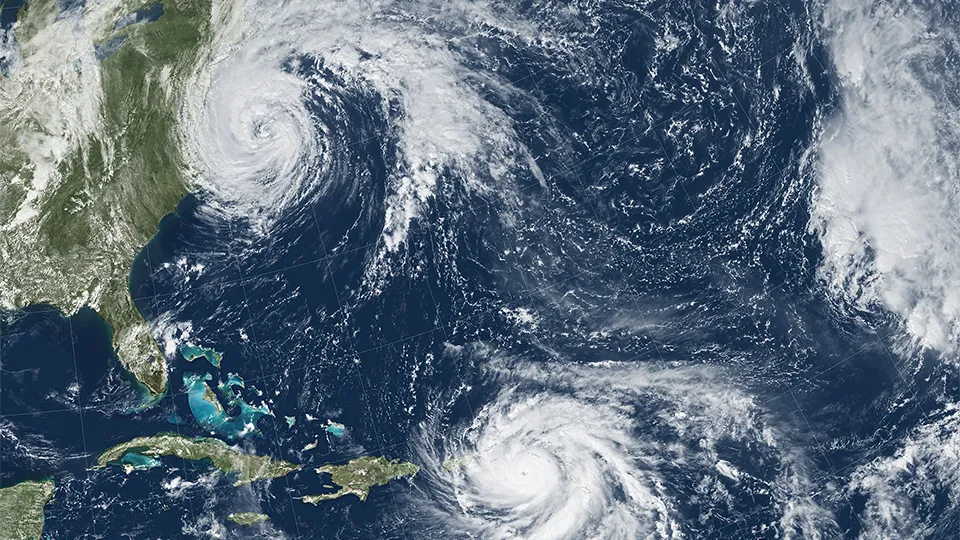
Daily Audio Newscast Afternoon Update - May 14, 2025
© INDU BACHKHETI - iStock-1336427297
News from around the nation.
Trump lands in Qatar after meeting Syrian leader in Saudi Arabia; NC directory connects people of color with the land; NJ - Medicaid cuts projected to eliminate health insurance coverage for millions; MS teacher shortage threatens education gains, expert says.
Transcript
The Public News Service Wednesday afternoon update.
I'm Mike Clifford.
President Donald Trump arrived in Qatar on Wednesday, the second day of his Middle East trip as the fallout continues over the president's insistence on accepting a luxury plane from the country.
That from ABC News.
A report his Qatar visit follows his meeting with interim Syrian President Ahmad al-Sharaa in Saudi Arabia.
Trump took the meeting just after he announced the cessation of sanctions on the country.
ABC Notes also Wednesday, Health and Human Resources Secretary Robert F. Kennedy Jr. is set to testify before Congress, where he's expected to answer questions about massive cuts to the department.
And a new directory in North Carolina aims to become the Green Book for connecting black, indigenous, and people of color to the land.
The Afro Earth Connection is a digital directory that helps people find resources for growing fresh produce and connecting more broadly with the land.
The Green Book was a guide for black people traveling during the Jim Crow era.
Coordinator of the Afro Earth Connection, Kashia Knight, says she is building up the directory and calls the resource important right now as conditions feel increasingly unstable in the country, especially for people of color.
"When you work solution-based forward, you are creating more joy within, a sense of community and ease in a time where we are really uncertain of what the next 20 minutes will be like."
The directory also aims to connect people with instructors, farmers, gardeners, and people using the earth for healing.
I'm Eric Tegethoff reporting.
Just with federal budget priorities coming into focus this week, New Jersey advocates are sounding the alarm over cuts to Medicaid.
The Congressional Budget Office indicated their proposed House budget reconciliation bill would cut $880 billion from the deficit by 2034.
In testimony before the House Energy and Commerce Committee Tuesday afternoon, New Jersey Representative Frank Pallone said the office's projections found 13 million Americans would lose their health coverage due to the new bill and inaction in other areas.
The Medicaid and Affordable Care Act cuts included in the Energy and Commerce bill will make up at least 8.6 million of that total number.
So 8.6 from this bill alone and another 5 because it's obvious from the reconciliation bill that you're not going to reauthorize the assistance, if you will, for those who are on the Affordable Care Act.
The Energy and Commerce Committee bill doesn't include a reduction in the minimum federal Medicaid share to states or a per-beneficiary cap on spending as some had feared.
Brett Pivito reporting.
While Mississippi's education improvements could unravel unless the state addresses its teacher compensation crisis, the warning comes from Torrin Ballard, a former teacher and outgoing education policy researcher who stresses the Magnolia State's 2022 pay raise temporarily boosted recruitment but didn't solve retention.
In recent years, we have seen more people going into the profession, which is a good data trend, but we've also seen the number of teachers leaving Mississippi classrooms float.
In Wisconsin, for inflation, teacher salaries remain below 21st century levels with most severe gaps in poor districts unable to pay anything past a base salary.
This is Public News Service.
West Virginia is the only state in the country where the Trump administration has overturned the EPA's previous rejection of the state's plan to lift limits on the amount of sulfur dioxide in the air.
Sulfur dioxide is a harmful air pollutant that can cause serious lung and heart problems, particularly in people with asthma and older adults, explains Honey May, Sierra Club's West Virginia chapter director.
We're talking about asthma, we're talking about emergency room visits, especially among the youngest and oldest.
As the administration rolls these protections back, that's what it's going to amount to is sick West Virginians.
The proposed rollbacks come at a time of unprecedented cuts to programs that help improve the health of Mountain State residents, including the closure of National Institute for Occupational Safety and Health offices responsible for mind safety and free black lung disease screenings.
Nadia Ramligan reporting.
And a North Dakota task force raising awareness about child sexual abuse is close to wrapping up its work.
Its leader says she hopes more communities use every tool to ensure kids are raised in a safe environment.
By state law, the task force is scheduled to dissolve June 30th.
Director Lindsay Burkhart says a key accomplishment was creating a pair of guides, one for families and another for schools and youth service groups, that lay out the best prevention practices and resources to turn to.
She says they're still fighting misconceptions, such as children are most often abused by strangers.
Burkhart says it's why these conversations are important, including talks with kids.
What are protective strategies that we can teach our children to help empower them, help keep them safe?
Burkhart says evidence of misconceptions surfaced in a pilot project in Richland County, where the task force surveyed residents.
Twenty-five percent of respondents said they didn't believe child sexual abuse happened within the county.
I'm Mike Moen.
Finally, studies show one in ten black people in the U.S. are immigrants, and advocates say they face significant challenges to blending into the American melting pot.
Nearly half of black immigrants in the U.S. are from the Caribbean, while about four in ten are from sub-Saharan Africa.
Shanika Holder-White with the National Black Workers Center says that because of historic patterns of discrimination against people of color, black migrants often face challenges not always encountered by other ethnicities.
She says they usually feel singled out because of their status.
There is a heightened fear.
We're seeing black immigrants withdrawing from spaces that they've typically gone to.
We're seeing more kids missing schools or people being afraid to go into hospitals because of the fear of being asked their status.
Holder-White points out that 40 percent of black immigrants from Africa have at least a bachelor's degree and 16 percent have a postgraduate education.
I'm Catherine Carley.
This is Mike Clifford for Public News Service.
Member and listener supported.
Find our trust indicators at publicnewsservice.org.

















